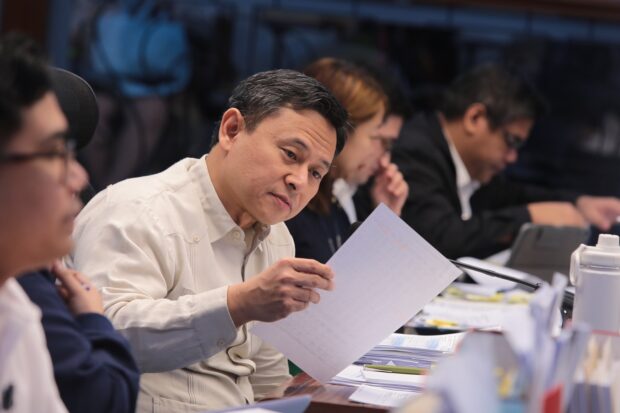
Sen. Sonny Angara (File photo from Voltaire F. Domingo / Senate PRIB)
MANILA, Philippines — Senate subcommittee on constitutional amendments and revision of codes is relying on concrete legal basis as it states that amending the Constitution does not violate the country’s policies.
This is the statement of Senator Sonny Angara, chair of the committee, as he attended the Kapihan sa Senado forum on Thursday.
“I think we stand on strong legal grounds, but I cannot say we’re going to win 100 percent, dahil hindi ko naman alam ang thoughts ng Supreme Court (SC) justices on that matter,” Angara said.
(I think we stand on strong legal grounds but I cannot say we’re going to win 100 percent, because I don’t know the thoughts of Supreme Court justices on that matter.)
In the forum, he was asked if he can defend the legality of what they are doing, should someone challenge it before the High Tribunal.
“May sarili silang pag aaral. May sarili silang pananaw,” Angara responded, referring to the SC magistrates.
(They conduct their own studies. They have their own views.)
With President Ferdinand ‘Bongbong’ Marcos Jr.’s directive, Senate is currently spearheading talks on amending the economic provisions of the 1987 Constitution.
Senate President Juan Miguel Zubiri earlier said the two chambers of Congress need not convene to study the proposed amendments.
Senate and House of Representatives intend to hold separate hearings on the matter.
According to Zubiri, the voting requirement for the approval of the amendment will be two-thirds for each chamber — a little higher than the majority vote required to pass a regular bill.
Zubiri likewise noted the agreement made in the Palace is that the upper chamber will pass the final version of the Resolution of Both Houses No. 6.
The House will only adopt the Senate version of the measure.